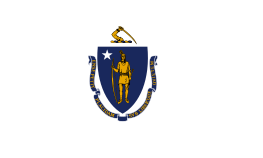Henry B. Lovering
| Henry Bacon Lovering | |
|---|---|
 | |
| Member of the U.S. House of Representatives from Massachusetts's 6th district | |
|
In office March 4, 1883 – March 3, 1887 | |
| Preceded by | Eben F. Stone |
| Succeeded by | Henry Cabot Lodge |
| 18th Mayor of Lynn, Massachusetts | |
|
In office January 3, 1881[1] – January 1, 1883[1] | |
| Preceded by | George P. Sanderson |
| Succeeded by | William L. Baird |
| Member of the Massachusetts House of Representatives | |
|
In office 1872 1874 | |
| Personal details | |
| Born |
August 3, 1822 Portsmouth, New Hampshire, USA |
| Died |
April 5, 1911 (aged 88)[2] Wakefield, Massachusetts[2] |
| Resting place | Pine Grove Cemetery |
| Political party | Democratic[2] |
| Spouse(s) | Abby J. Clifford[2] |
| Alma mater | Phillips Exeter Academy |
| Signature |
|
| Military service | |
| Allegiance |
United States of America Union |
| Service/branch | Union Army |
| Unit |
Eighth Massachusetts Regiment Third Massachusetts Cavalry |
| Battles/wars | |
Henry Bacon Lovering (April 8, 1841 – April 5, 1911) was a U.S. Representative from Massachusetts.
Early life and education
Born in Portsmouth, New Hampshire, Lovering attended the public schools of Lynn, Massachusetts, and was graduated from Phillips Exeter Academy, Exeter, New Hampshire.
During the Civil War; Lovering enlisted in 1862 in the Eighth Regiment, Massachusetts Volunteer Infantry, and served out his term. He reenlisted in the Third Massachusetts Cavalry and served until the Battle of Winchester; where he lost his left leg.[2][3]
Political career
Lovering served as member of the Massachusetts House of Representatives in 1872 and 1874. He was a member of the Lynn, Massachusetts Board of Assessors in 1879 and 1880.[2] Lovering served as the 18th Mayor of Lynn in 1881 and 1882.[3] He was elected as a Democrat to the Forty-eighth and Forty-ninth Congresses (March 4, 1883 – March 3, 1887). He was an unsuccessful candidate for reelection in 1886 to the Fiftieth Congress. Lovering was Chairmen of the Massachusetts Democratic State Convention of 1886 and the unsuccessful Democratic candidate for Governor of Massachusetts in 1887.[3] In 1888, Lovering was appointed United States Marshal for Massachusetts by President Cleveland,[2] serving until the Republicans returned to power in 1891. Lovering was Warden of the State prison 1891-1893, United States pension agent at Boston 1894-1898, Sealer of weights and measures for the city of Boston, Massachusetts from 1902 to 1905, and Superintendent of the Chardon Street Soldiers' Home at Boston from 1905-1907.
Death and Burial
Lovering moved to Wakefield, Massachusetts, in 1907, where he died at the residence of his son[2][3] on April 5, 1911.[3] Lovering was interred in Pine Grove Cemetery, Lynn, Massachusetts.
References
- United States Congress. "Henry B. Lovering (id: L000464)". Biographical Directory of the United States Congress.
Notes
- 1 2 Hurd, Duane Hamilton (1888), History of Essex County, Massachusetts: with Biographical Sketches of Many of its Pioneers and Prominent Men, Volume 1, Issue 1, Philadelphia, PA: J.W. Lewis & CO., p. 261.
- 1 2 3 4 5 6 7 8 9 Metcalf, Henry Harrison (June 1911), The Granite Monthly, Vol XLIII, No. 6; New Hampshire Necrology Hon. Henry B. Lovering, Concord, New Hampshire: Granite Monthly Company, p. 222.
- 1 2 3 4 5 The New York Times (April 6, 1911), Ex-Congressman Henry B. Lovering., New York, New York: New York Times, p. 11.
External links
| Political offices | ||
|---|---|---|
| Preceded by George P. Sanderson |
Mayor of Lynn, Massachusetts January 3, 1881 - January 1, 1883 |
Succeeded by William L. Baird |
| U.S. House of Representatives | ||
| Preceded by Eben F. Stone |
Member of the U.S. House of Representatives from Massachusetts's 6th congressional district March 4, 1883 - March 3, 1887 |
Succeeded by Henry Cabot Lodge |
![]()

